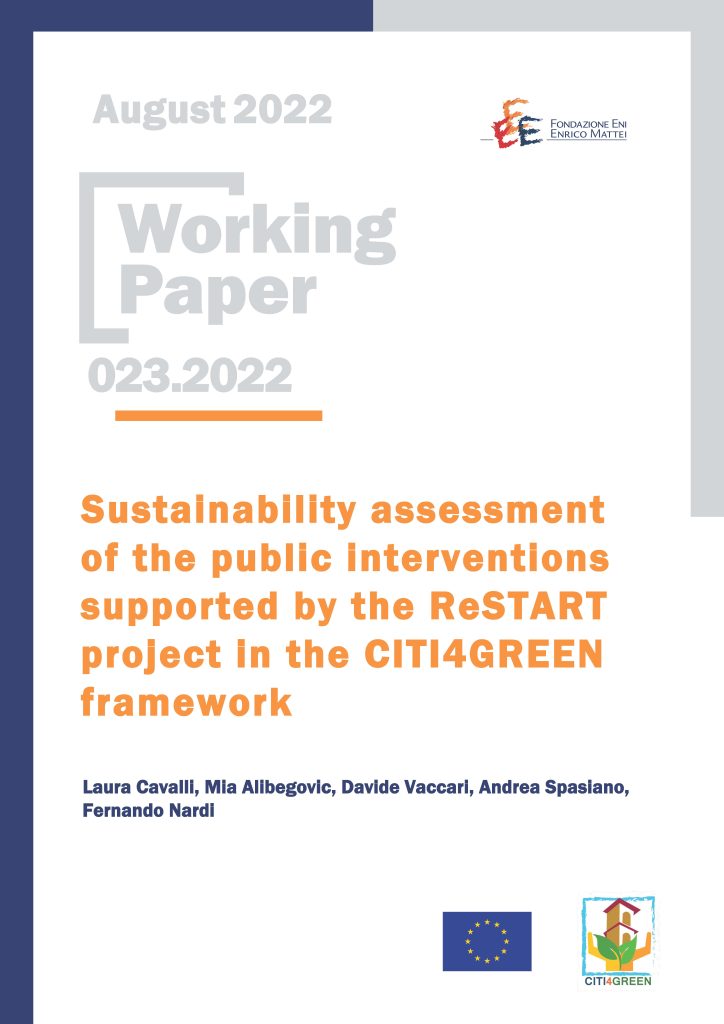Sustainability assessment of the public interventions supported by the ReSTART project in the CITI4GREEN framework

09.08.2022
Laura Cavalli (Fondazione Eni Enrico Mattei); Mia Alibegovic (Fondazione Eni Enrico Mattei); Davide Vaccari (Fondazione Eni Enrico Mattei); Andrea Spasiano (Water Resources Research and Documentation Center, Università per Stranieri di Perugia); Fernando Nardi (Fondazione Eni Enrico Mattei and Water Resources Research and Documentation Center, Università per Stranieri di Perugia)
R58, H83, C43, Q56
sustainable development, SDGs, cohesion policy, public finance, sustainability assessment
As part of the CITI4GREEN project, this contribution analyzes the public interventions contained in Re-START “Territorial Resilience of the Central Apennines Earthquake Reconstruction” assessing their impacts on the sustainability guidelines posed by the United Nations through the establishment of the 2030 Agenda and its 17 Sustainable Development Goals (SDGs). To do so, the paper applies the methodology developed in Cavalli et al. (2020, 2021) to the 1278 reconstruction, repair, and restoration works in the Italian regions of Abruzzo, Lazio, Marche, and Umbria, affected by the seismic events of 2016 and 2017. The results are a clear priority given to Goal 4, “Quality education” which accounts for the 24.2% of the investments that af-fect the Agenda. Goal 11, “Sustainable cities and communities” takes the second place with 19.8%. Goals 14 “Life below water” and 7 “Affordable and clean energy” are, respectively, last and second last. All the three pillars of sustainability — environmental, social, and economic — are embraced by the public interventions. However, clear priority has been given to social and environmental sustainability. The economic dimension results under-represented. Additional policies are needed to ensure a more integrated sustainable development.
***
Suggested citation: L. Cavalli, M. Alibegovic, D. Vaccari, A. Spasiano, F. Nardi, ‘Sustainability assessment of the public interventions supported by the ReSTART project in the CITI4GREEN framework’, Nota di Lavoro 023.2022, Milano, Italy: Fondazione Eni Enrico Mattei
